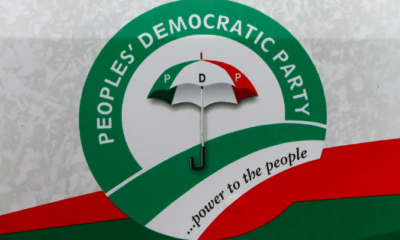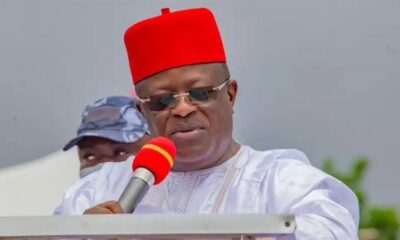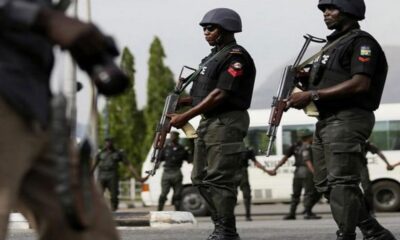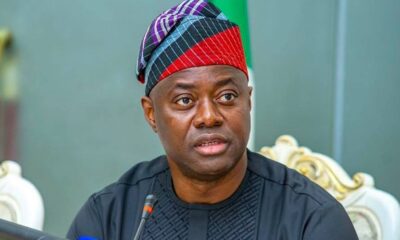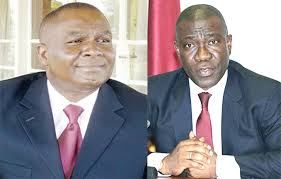Breaking News
Makinde Faults Umahi Over Lagos-Calabar Highway Cost

Oyo State Governor, Seyi Makinde, has criticised the Minister of Works, David Umahi, over his response to questions about the cost of the Lagos-Calabar Coastal Highway, describing the minister’s attitude as evasive and unnecessary.
Makinde, speaking in a viral video on Friday, said there was no need for Umahi to be “dancing around the cost” of the multi-billion-naira coastal project, which has sparked controversy over its transparency and implementation.
The governor was reacting to a heated on-air exchange between Umahi and Arise TV anchor, Rufai Oseni, earlier in the week.
During the interview, Oseni had asked the minister to break down the project’s cost per kilometre, a request that appeared to irritate Umahi, who dismissed it as “elementary” and accused the journalist of ignorance.
“They asked a minister how much the coastal road is, and then you (Umahi) are dancing around, saying the next kilometre is different from the next kilometre. Then what is the average cost?” Makinde queried.
The governor said such questions were legitimate and expected in a democracy.
“When we did the Oyo to Iseyin road, it was about ₦9.99 billion, almost ₦10 billion, for about 34 or 35 kilometres. The average cost was about ₦238 million per kilometre,” Makinde explained.
“But when we did Iseyin to Ogbomoso, which is 76 kilometres, it was about ₦43 billion, an average of ₦500 million per kilometre. And we had two bridges, one over the Ogun River and another at Ogbomoso end.”
During the interview on Tuesday, Umahi had reacted angrily when Oseni pressed him to provide a cost analysis of the Lagos-Calabar Coastal Highway.
The minister, who described himself as a “professor of practice in engineering,” said such cost breakdowns varied from one segment of the road to another and could not be simplified.
“These are elementary questions. A process is ongoing, payment has been made, and you are saying, ‘how has this money been utilised?’ The money is meant for the project, and it will be paid according to the work done,” Umahi said.
“How can you be asking for cost per kilometre? The prices are different. Keep quiet and stop saying what you don’t know. I’m a professor in this field,” he added.
Oseni, however, refused to back down, responding, “Minister, it’s alright. Keep dignifying yourself and let the world know who you truly are.”
Makinde said government officials should embrace transparency and accountability, especially when handling large-scale projects funded with taxpayers’ money.
“There’s nothing wrong with asking questions. Nigerians deserve to know what their money is being spent on. When you’re asked, just say the cost per kilometre or the average—it’s simple,” the governor said.
He added that such openness builds public trust and helps prevent misinformation about major infrastructure projects.
The Lagos-Calabar Coastal Highway, spanning over 700 kilometres across nine states with two northern spurs, was approved by President Bola Tinubu in 2023.
The first phase, covering 47.47 kilometres of dual carriageway, was handed over to Hitech Construction Company Limited, to be built with concrete pavement technology.
Umahi, during the project handover, had stressed the need for contractors to deliver within record time, warning that the Federal Government would not entertain cost variations caused by project delays or inefficiency.
However, public criticism continues to trail the project, with many, including civil society groups and opposition politicians, demanding clarity on funding, cost breakdown, and environmental impact, especially as demolition along the alignment has displaced several businesses and residents.

